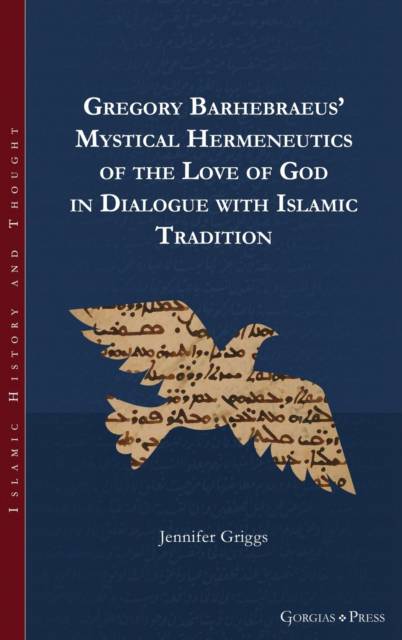
- Retrait gratuit dans votre magasin Club
- 7.000.000 titres dans notre catalogue
- Payer en toute sécurité
- Toujours un magasin près de chez vous
- Retrait gratuit dans votre magasin Club
- 7.000.0000 titres dans notre catalogue
- Payer en toute sécurité
- Toujours un magasin près de chez vous
Gregory Barhebraeus' Mystical Hermeneutics of the Love of God in Dialogue with Islamic Tradition
Jennifer GriggsDescription
This book explores the mystical thought of Gregory Barhebraeus (1226-1286CE) and its contemporary relevance, to offer a reading of Barhebraeus' mystical texts by bringing them into conversation with critical religious studies and the hermeneutical tradition of philosophy. Griggs emphasises the problem of conceptual categories for the academic study of mysticism, seeking to avoid traditional assumptions concerning 'mysticism' and attend to the particularity of 'mystic' traditions. Through this approach, she examines the mystical hermeneutics of the love of God developed by Barhebraeus, as a response to the elaboration of this theme by the Islamic theologian Abu Hamid al-Ghazālī (1058-1111CE), and as a resolution of the tensions between scholastics and ascetics within his own Syriac tradition.
Spécifications
Parties prenantes
- Auteur(s) :
- Editeur:
Contenu
- Nombre de pages :
- 376
- Langue:
- Anglais
- Collection :
- Tome:
- n° 23
Caractéristiques
- EAN:
- 9781463242473
- Date de parution :
- 11-08-22
- Format:
- Livre relié
- Format numérique:
- Genaaid
- Dimensions :
- 152 mm x 229 mm
- Poids :
- 671 g

Les avis
Nous publions uniquement les avis qui respectent les conditions requises. Consultez nos conditions pour les avis.






